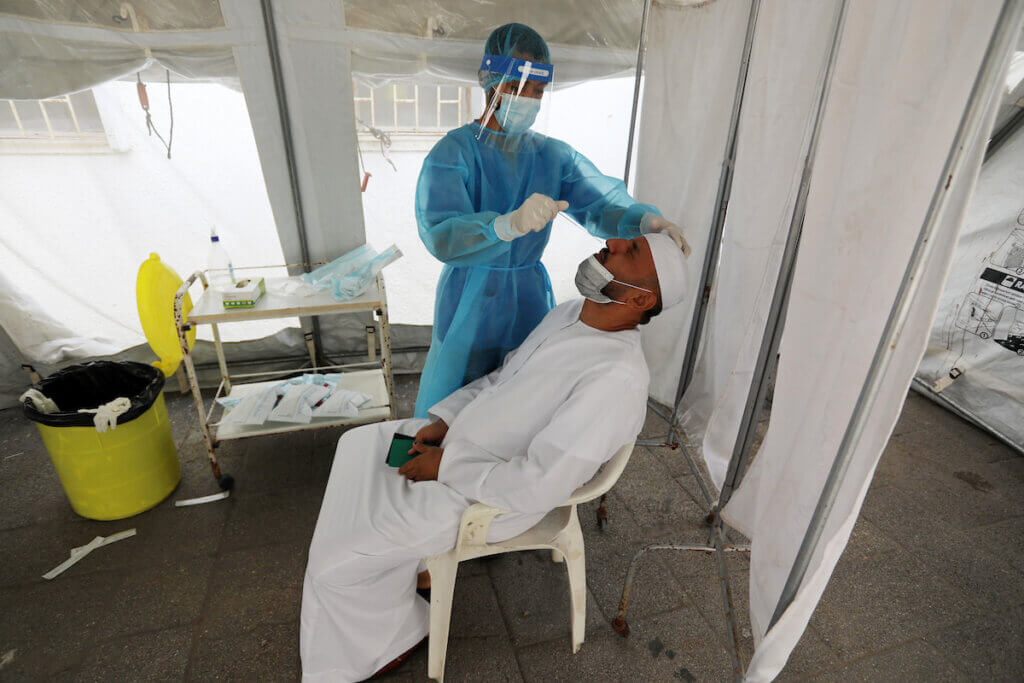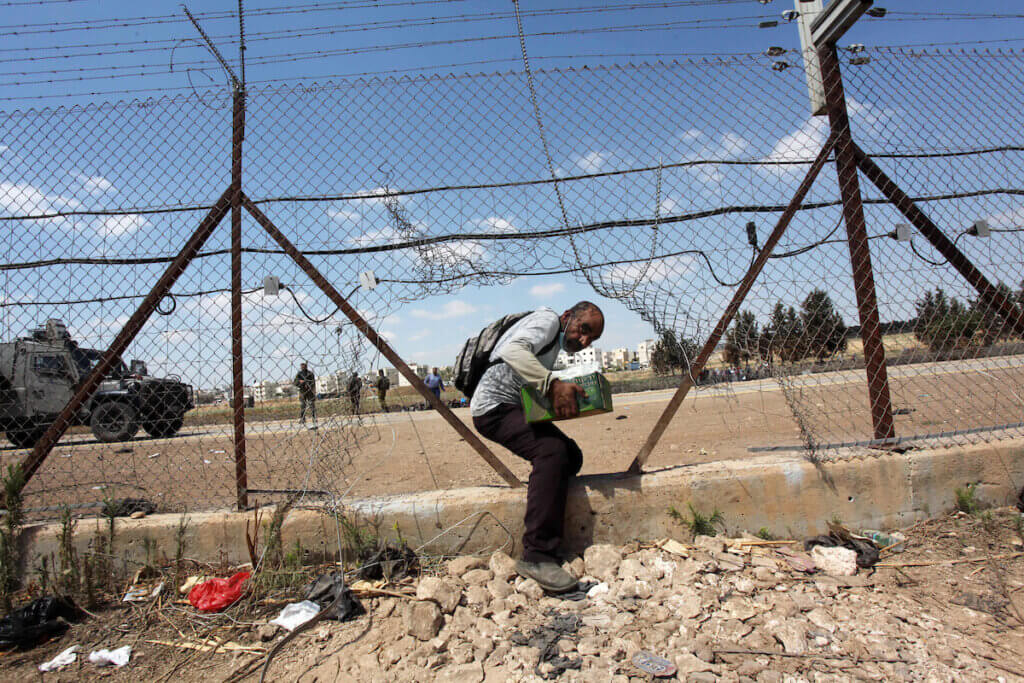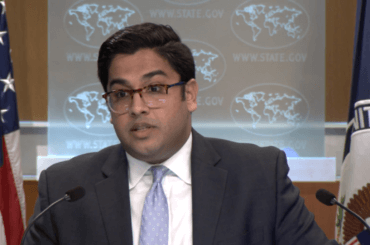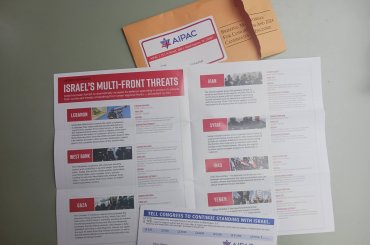The latest
- 447,612 Palestinians tested positive for COVID-19; 429,670 recoveries; 4,567 deaths
- Of those who tested positive, 237,819 live in the West Bank, 179,437 live in Gaza, 30,356 live in East Jerusalem
- 1,313,755 Israelis tested positive for COVID-19; 1,284,729 recoveries; 7,976 deaths
While Israel is expecting a six-month recoil in coronavirus cases after administering a third, or booster, shot of the COVID-19 vaccine to everyone over the age of 12, health officials have retooled requirements for their “Green Pass” system and in the wake of this new regulation Palestinian workers will lose their status.
Israel’s Green Pass, or mandatory vaccine rules that allow people to enter restaurants and businesses, were tightened about two weeks ago sparking a wave of protests. The Health Ministry’s new guidelines say the pass expires six months after the second vaccine shot. Individuals can reapply after getting a booster shot. However, this process is only applicable for those who were given the Pfizer vaccine, right now the only manufacturer who offers a third dose.
The big picture: Around 120,000 Palestinian workers who have permits to cross into Israel each day were given the Moderna vaccine, which does not have a third dose on the market. Meaning, they will all lose their Green Pass status. Those who work in cafes, bars, and shops, will be barred from their place of employment under current guidelines.
You might wonder: why can’t Palestinians just take a Pfizer booster? Well, that could be dangerous. Israel’s head of public health services, Dr. Sharon Alroy-Preis, explained to the Jerusalem Post this week, that it’s not advised to take a booster shot while a person still has full vaccine coverage. We know from many studies, the Pfizer vaccine efficacy starts dropping around the six-month marker. But Moderna’s retreat in efficacy hasn’t been studied.
“Moderna is the same platform” as Pfizer, Alroy-Preis told the Jerusalem Post. “There will be some waning, we just don’t know yet if it is six months, eight months or nine months.”

A Palestinian health worker collects a swab sample from a person for a COVID-19 test at a temporary vaccination center set up, in Deir al-Balah in the center of the Gaza Strip on September 28, 2021. (Photo: Ashraf Amra/APA Images)
Around 50% of eligible Palestinians vaccinated
After a slow vaccination campaign, finally Palestinians are making headway with 47.76% of those eligible in the West Bank and Gaza (meaning people over the age of 16) are have received a jab protecting them from COVID-19.
Although of the 1,439,049 vaccinated, only 431, 214 are in the Gaza Strip, which right now represents around 75% of the active COVID-19 cases, according to the WHO’s latest situation report.
With limited testing in the occupied Palestinian territory, we’ve tracked the positivity rate as an indicator of how aggressive the spread of the virus is, rather than the raw numbers of daily new confirmed cases. In the West Bank, it’s down to 7.31%, mind you, in September it was 12.7%. Yet Gaza’s rate of lab tests that come back positive tells a different story. It’s hovering around 31% and has been that way for weeks. This is one of the highest positivity rates in the world. We’ve also looked at the number of lab tests run per day. In Gaza, right now has an average of 3,380 tests per day. This is a relative dip from recent weeks, but a couple of months ago testing was at half of that, and also had a 30% positivity rate.
If the number of tests goes up, but the positivity rate does not decrease, this means that the rate of spread is also climbing, yet it is masked by limited resources/limited data.
We’ll keep following these stories and update you when we know more. Have a great weekend!


